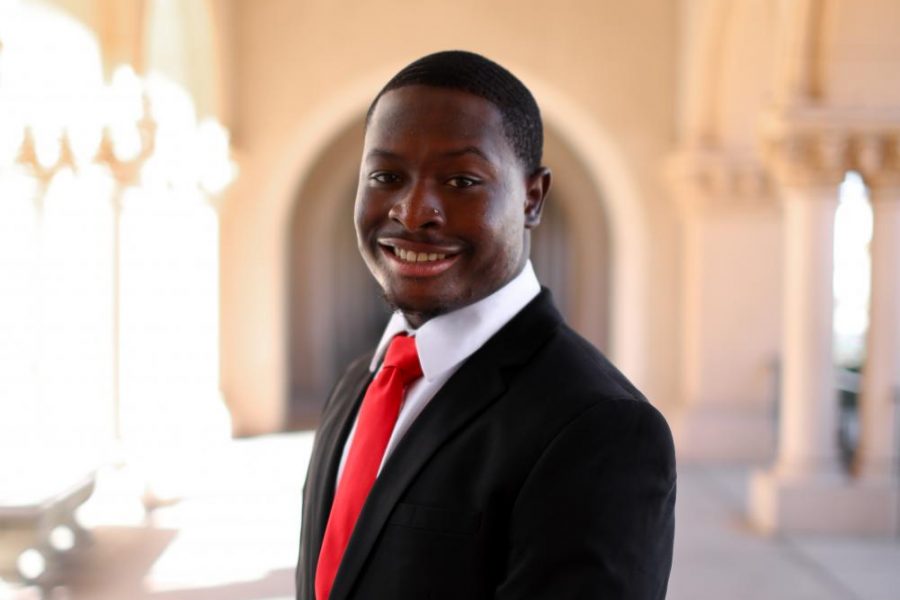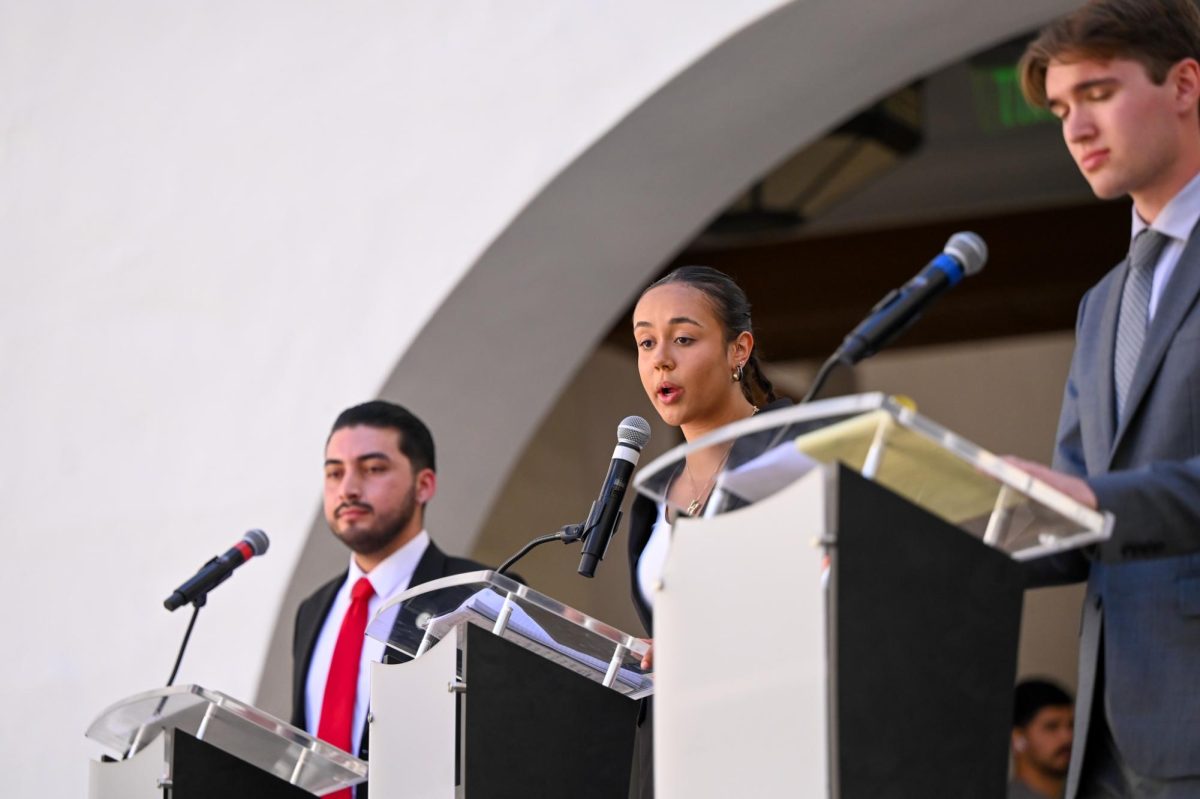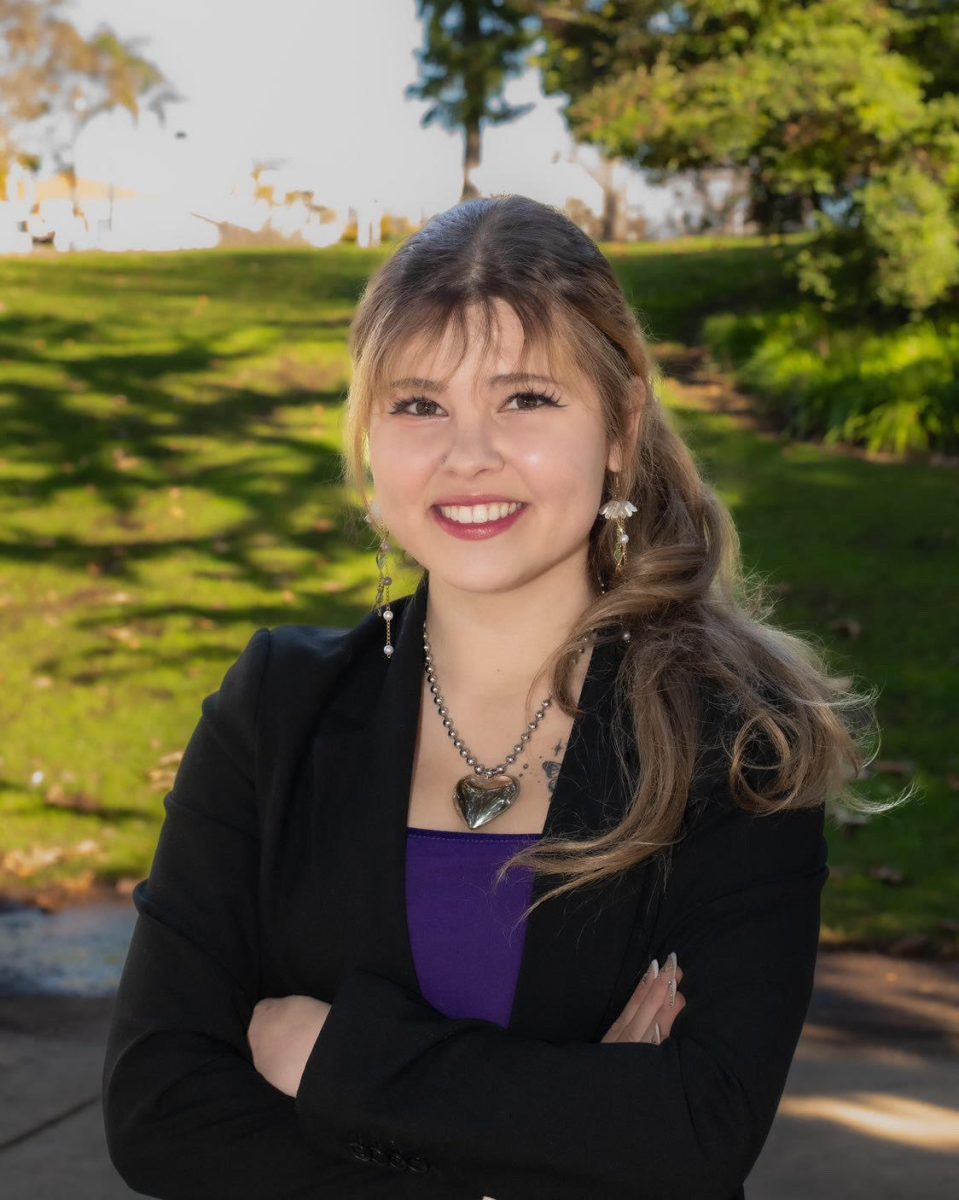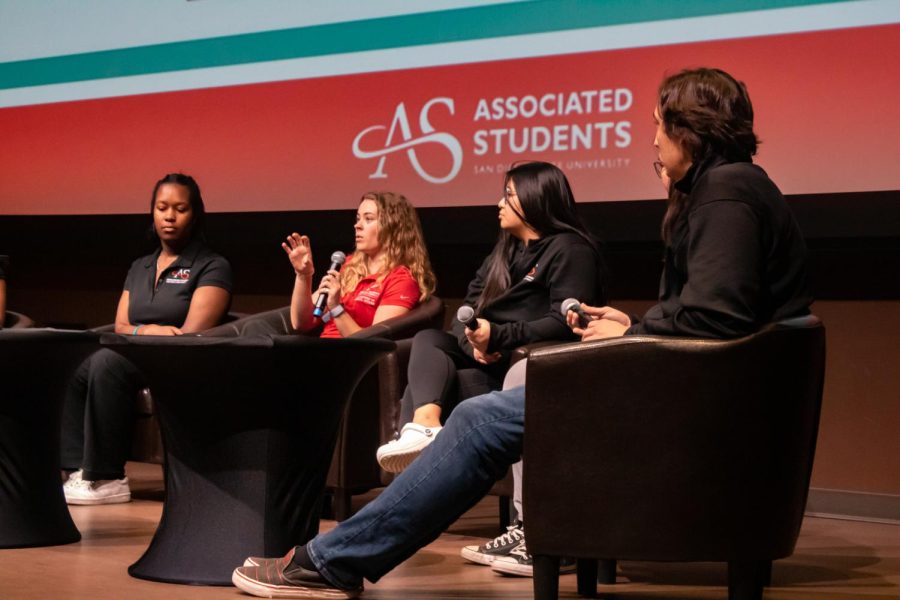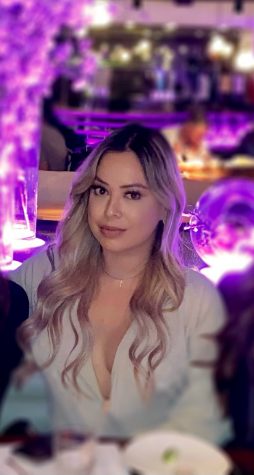Position: Vice President of External Relations
Name: Shawki Moore
Slate: SDSU Now
Year: Junior
Major: Communications
Why did you decide to run for this position?
I decided to run for this position to create a change now. Through my experience within my personal leadership positions, I’ve learned the importance of the individual power of each student’s voice. I would like to take those student voices and concerns and be able to create a way to advocate for those students on campus. Not just here, but across the greater CSU system.
What makes you qualified for this position? What is your history with A.S.?
I feel I’m qualified for this position because since I’ve stepped foot on campus, I’ve had a desire to consistently see it improve. In my experience as Afrikan Student Union cultural chair, NAACP membership chair, Student African American Brotherhood public relations and academic coach for the Black Resource Center as well as the lieutenant strategist for Kappa Alpha Psi Fraternity Incorporated, I have been able to advocate and will continue to advocate and stress the importance of individual student voices.
My history with Associated Students comes from the first-year leadership experience. That’s where I was able to gain a greater understanding of the overall structure of A.S. and be mentored by the current chief of staff Max Johnson and shadowed the former A.S. president, Christian Onwuka and really learned how the intricacies of the organization works and how you can affect change on campus.
What would you like to change at SDSU?
I would like to see the transparency of the administration change because it’s really leading to a distrust of students. The way I really want to see this change is by creating town halls so that students, faculty and administration can collaborate with each other to find solutions to the issues that we see here on campus. And to create intentional change between faculty and students.
Can you name something you like and something you dislike about A.S.?
Something that I really like about A.S. is the opportunity that it allows students to be able to create change in different parts of campus. Not just change for the second, but a lasting change that will be able to be built on generationally by future leaders. Because the decisions we make now will impact students in 2025.
The thing I dislike about A.S. is the accessibility to A. S. If I ask some of my friends about A.S. and how to get involved, they wouldn’t know how to answer that. If this organization has so much power to make the intentional change that I talked about, and the reason why I like the A. S.; we need to be able to have every student know about A.S. and know how to get involved. So we can have the change really reflect the entirety of the student voices on campus. I want to do this by going out to these communities and asking what their needs and concerns are from A.S. and also encouraging them to get involved. But really going out to students instead of taking the approach that students will come to us.
What will be your top three priorities in this role?
My top three priorities as chief communications officer, being the conduit between traditionally silenced communities and A.S. leaders. I want to do this by going to these communities and having a conversation to see what their needs and concerns are and being able to bring those back to A.S. leaders. So we can talk about those concerns and how to go out and engage with those communities and make a difference in those communities.
My second goal would be to create student platforms to vocalize needs and concerns that they have with administration and things on campus that they want to see changed. The way that I want to do this is by creating town halls where we talk about issues and have students collaborate with administrators and faculty on the problems they see and solutions they see to fix these problems. As well as working with my chief of staff to increase student engagement on the university senate committees. Because a lot of real change happens in these university senate committees, but a lot of students don’t know how to get involved on them or where to actually start.
My third goal is to really emphasize the need for more student employment opportunities on campus due to the COVID-19 pandemic. Since the pandemic hit, we’ve lost a lot of jobs here on campus. And I want to bring those jobs back by examining the campus entities that we have like A.S., for example, the Office of Housing and Aztec Shop; to see where we can increase student employment opportunities in those positions. As well as working with my vice president of financial affairs, Austin Barber, to see where in the A.S. budget we can allocate funds for these different jobs.




